As a passionate dog enthusiast, I’ve always been drawn to the German Shepherd breed for its undeniable strength, intelligence, and unwavering loyalty. But within this esteemed breed, a captivating variation has piqued my interest—the Long Haired German Shepherd. With its flowing coat and regal demeanor, this sub-breed possesses a unique charm that I find utterly captivating.
Before leaping into the decision to bring home a Long Haired German Shepherd, it’s crucial to grasp the intricacies of this particular variation. From its origins and distinctive characteristics to potential health considerations and the level of commitment required for its care, embarking on this journey demands thoughtful consideration and well-informed decision-making.
In this comprehensive guide, we’ll embark on a journey to unravel the mysteries surrounding the Long Haired German Shepherd, offering invaluable insights into everything you need to know before welcoming one into your home. Whether you’re a seasoned dog owner like me or a first-time pet parent, I invite you to join us as we explore the world of the Long Haired German Shepherd, ensuring that your journey with this majestic breed is as rewarding and fulfilling as possible.
TABLE OF CONTENTS
- Long-Haired German Shepherd Summary
- Origins and History
- Breed Characteristics of a Haired German Shepherd
- Temperament and Personality Traits
- Common Health Issues
- Tips for Maintaining Good Health and Preventing Common Issues
- Training and Socialization
- The Cost of Living With A Long Haired German Shepherd
- So, Should I Get A Long Haired German Shepherd?
- FAQs on Long-Haired Shepherds
- Final Woof: Your Happy Furry Friend
Long-Haired German Shepherd Summary
Origins and History
German Shepherds trace their roots back to Germany, where they were originally bred as herding dogs. However, the breed wasn’t standardized until Max von Stephanitz took up the challenge in 1899. Stephanitz dedicated himself to creating the perfect German Shepherd, drawing from various regional variations of the breed. His efforts culminated in the establishment of the first German Shepherd breed club.
As the 1900s dawned, German Shepherds found their way to the United States, quickly gaining popularity, thanks in part to their appearances in the media and movies. Renowned for their strong work ethic, these dogs weren’t just professional herders—they also excelled as police dogs and service animals, owing to their intelligence and ease of training.
However, the story takes a twist when it comes to the Long Haired German Shepherd. Unlike their short-haired counterparts, the long-haired variety lacked the dense undercoat needed for outdoor work, leading them to be kept indoors as companions rather than laborers in the fields. Consequently, their temperament evolved to be less serious and more amiable compared to their overprotective counterparts.
Despite their affable nature and undeniable charm, Long Haired German Shepherds faced discrimination from the American Kennel Club (AKC), which deemed their long hair a genetic fault. This refusal to acknowledge them as a legitimate variation of the breed did little to dampen their popularity among dog lovers, as these elegant canines found their way into countless homes, winning over hearts with their beauty and gentle demeanor.
Here are seven fascinating facts about Long Haired German Shepherds:
- The long hair gene in German Shepherds is recessive, requiring both parents to carry or exhibit long hair to produce long-haired offspring.
- Only a minority, approximately 10%, of German Shepherds sport the long-haired variety.
- Due to the AKC’s classification, long-haired German Shepherds are ineligible to compete in traditional dog shows.
- Long Haired German Shepherd puppies are typically born with floppy ears, which gradually perk up as they mature.
- Unlike their short-haired counterparts, Long Haired German Shepherds tend to have smaller litter sizes, usually producing only 1-3 puppies per litter.
- Renowned for their kind and laid-back demeanor, these dogs are bred more for companionship than for work.
- Long Haired German Shepherds excel as service dogs and police canines, with the breed even boasting the distinction of being the first guide dog.
Breed Characteristics of a Haired German Shepherd
From Adobe Stock
Physical Appearance and Coat Characteristics
The Long Haired GSD possesses a commanding presence that exudes confidence and strength.
Facial Features
Their striking appearance is accentuated by intelligent brown eyes that convey both wisdom and alertness. Set against a backdrop of a large head and strong jawline, their eyes command attention and respect. Complementing their facial structure are pointed, erect ears that stand as a testament to their attentiveness and readiness to spring into action.
Muscular Build
Standing proudly at 22-26 inches tall and weighing between 50 to 90 pounds, these dogs boast a muscular physique that speaks to their agility and athleticism. With a robust chest and powerful limbs, they embody grace and power in equal measure.
Coat Color and Texture
The most notable feature of the Long Haired German Shepherd is, undoubtedly, its luxurious coat. Draped in long, straight, and silky fur, these canines epitomize elegance and grace. Their coat cascades around their body, forming tufts of fur that feather out delicately around their ears, legs, and between their paw pads. A particularly eye-catching feature is the lush fur adorning their bushy tails, adding to their majestic allure.
Shedding and Coat Maintenance
While their beautiful fur enhances their aesthetic appeal, it comes with the caveat of extensive shedding. Long Hair German Shepherds are prolific shedders, with their fur coating everything they come into contact with. Regular grooming is essential to manage their shedding and keep their coat in prime condition.
Environmental Adaptability
Unlike their short-haired counterparts, Long Coat German Shepherds lack an undercoat, making them less tolerant of harsh environmental conditions such as extreme cold or wet weather. However, this absence of an undercoat results in a shinier and sleeker fur texture compared to standard German Shepherds.
Coat Color Variations
The most common coat variation for this breed is the classic black and tan combination, which epitomizes the quintessential German Shepherd aesthetic. Additionally, variations such as red and black coats exist, adding further diversity to the breed’s color palette. Rarely, all-white German Shepherds can be found, though they are exceptionally uncommon and highly sought after by enthusiasts.
Temperament and Personality Traits
Beyond their striking appearance, Long Haired German Shepherds possess the same exceptional temperament and personality traits that have endeared the breed to countless families worldwide. Known for their unwavering loyalty, intelligence, and protective instincts, these dogs make excellent companions and are fiercely devoted to their human families. Whether they’re serving as loyal guardians or playful companions, Long Haired German Shepherds are sure to steal your heart with their loving and affectionate nature.
Common Health Issues
From Adobe Stock
Genetic Predispositions
Long Haired German Shepherds, like many purebred dogs, are prone to certain genetic predispositions that can affect their health and well-being. These may include:
- Hip Dysplasia: A common inherited condition in large breeds, hip dysplasia occurs when the hip joint doesn’t develop properly, leading to joint instability and potential arthritis.
- Elbow Dysplasia: Similar to hip dysplasia, elbow dysplasia is a developmental abnormality affecting the elbow joint, causing lameness and discomfort.
- Degenerative Myelopathy: This progressive neurological disorder affects the spinal cord, leading to weakness and paralysis in the hind limbs.
- Exocrine Pancreatic Insufficiency (EPI): In EPI, the pancreas fails to produce enough digestive enzymes, resulting in poor nutrient absorption and weight loss.
- Von Willebrand Disease: This inherited bleeding disorder impairs the blood’s ability to clot properly, leading to excessive bleeding and bruising.
Orthopedic Concerns
Long Haired German Shepherds are particularly susceptible to orthopedic issues, given their large size and active lifestyle. Common orthopedic concerns include:
- Osteoarthritis: A degenerative joint disease characterized by the breakdown of cartilage and inflammation, causing pain and stiffness.
- Cruciate Ligament Rupture: The tearing of the cruciate ligament in the knee can result in lameness and instability.
- Intervertebral Disc Disease (IVDD): This condition affects the spinal discs, leading to pain, paralysis, and neurological deficits.
- Panosteitis: Commonly known as “growing pains,” panosteitis causes lameness and discomfort, particularly in young, rapidly growing dogs.
Skin and Coat Issues
While the long, luxurious coat of the Long Haired and fluffy German Shepherd is undoubtedly stunning, it also comes with its own set of skin and coat issues, including:
- Dermatitis: Allergies, parasites, and bacterial infections can all contribute to dermatitis, causing itching, redness, and skin irritation.
- Hot Spots: Also known as acute moist dermatitis, hot spots are localized areas of inflamed, infected skin that can be caused by underlying allergies or skin trauma.
- Pyoderma: This bacterial skin infection can occur secondary to other skin conditions, resulting in pustules, redness, and hair loss.
- Alopecia: Some Long Haired German Shepherds may experience hair loss or thinning, which can be attributed to genetic factors, hormonal imbalances, or underlying medical conditions.
Tips for Maintaining Good Health and Preventing Common Issues
From Adobe Stock
Proper Nutrition and Diet Recommendations
Ensuring your Long Haired German Shepherd receives a balanced and nutritious diet is essential for maintaining optimal health. Consider the following diet recommendations:
- High-quality, protein-rich dog food formulated for large breeds can support muscle development and overall well-being.
- Avoid overfeeding and monitor portion sizes to prevent obesity, which can exacerbate orthopedic issues.
- Incorporate omega-3 fatty acids and antioxidants into their diet to support joint health and reduce inflammation.
Regular Exercise and Mental Stimulation
Long Haired German Shepherds are highly active and intelligent dogs that require plenty of physical exercise and mental stimulation to thrive. Follow these tips:
- Provide daily opportunities for vigorous exercise, such as brisk walks, jogging, or interactive play sessions.
- Engage their minds with training exercises, puzzle toys, and obedience training to prevent boredom and behavioral issues.
- Ensure they have access to a secure outdoor space where they can run and play safely.
Veterinary Care and Health Screenings
Regular veterinary check-ups and preventive care are crucial for detecting and addressing health issues early on. Here’s what you can do:
- Schedule annual wellness exams with your veterinarian to monitor your dog’s overall health and well-being.
- Stay up-to-date on vaccinations, parasite prevention, and dental care to prevent common illnesses and maintain oral hygiene.
- Consider health screenings, such as hip and elbow evaluations, genetic testing, and bloodwork, to assess your dog’s risk for hereditary conditions and address them proactively.
Training and Socialization
Importance of Early Training and Socialization
Early training and socialization play a pivotal role in shaping the behavior and temperament of Long Haired German Shepherds. Here’s why it’s crucial:
Behavioral Development: Early exposure to different people, animals, and environments helps puppies develop confidence and resilience, reducing the likelihood of fearfulness or aggression later in life.
Bonding: Training sessions provide an opportunity for bonding between you and your dog, fostering a strong relationship built on trust and mutual respect.
Prevention of Problematic Behaviors: Proper training and socialization can prevent common behavioral issues such as excessive barking, chewing, and leash pulling.
Positive Reinforcement Techniques
Positive reinforcement is the most effective and humane method for training Long Haired German Shepherds. Here’s how it works:
Reward-Based Training: Use treats, praise, and play to reward desired behaviors, such as sitting, staying, and coming when called.
Consistency: Be consistent in your training methods and expectations to avoid confusion and reinforce desired behaviors.
Patience and Persistence: Training takes time and patience, so be prepared to invest the effort consistently over time to see results.
Addressing Breed-Specific Behaviors
Long Haired German Shepherds exhibit certain breed-specific behaviors that require attention and management. Here are some examples:
Herding Instincts: German Shepherds have a strong herding instinct, which may manifest as nipping or chasing behavior. Channel this instinct into appropriate activities such as obedience training or agility trials.
Protectiveness: These dogs are naturally protective of their families and territory. Proper socialization can help prevent overprotective behavior and ensure they remain confident and well-adjusted around strangers.
High Energy Levels: Long Haired German Shepherds are energetic and require regular exercise to prevent boredom and destructive behavior. Engage them in stimulating activities such as fetch, hiking, or agility training to keep them mentally and physically stimulated.
The Cost of Living With A Long Haired German Shepherd
From Adobe Stock
Initial Purchase Price from Reputable Breeders
When acquiring a Long Haired German Shepherd from a reputable breeder, expect to pay a premium for a high-quality, healthy puppy. Factors influencing the purchase price include:
Breeder Reputation: Reputable breeders who prioritize health, temperament, and breed standards typically charge higher prices for their puppies.
Pedigree and Bloodlines: Puppies from champion bloodlines or with exceptional pedigrees may command higher prices.
Health Testing and Guarantees: Breeders who conduct health screenings and offer health guarantees may charge more for their puppies to cover these expenses.
Ongoing Expenses for Food, Grooming, and Healthcare
Owning a Long Haired German Shepherd comes with ongoing expenses to ensure their health and well-being. Consider the following expenses:
High-Quality Dog Food: Long Haired German Shepherds require a nutritious diet tailored to their size, activity level, and age.
Grooming Supplies: Regular grooming is essential to maintain their coat health, including brushes, shampoos, and grooming tools.
Veterinary Care: Budget for routine veterinary visits, vaccinations, parasite prevention, and emergency medical expenses.
Consideration of Potential Unexpected Costs
In addition to routine expenses, Long Haired German Shepherd owners should be prepared for unexpected costs such as:
Emergency Veterinary Care: Accidents, injuries, and sudden illnesses can result in costly veterinary bills.
Behavioral Training: Addressing behavioral issues may require professional training or behavior modification programs.
Unexpected Expenses: Factor in miscellaneous expenses such as boarding, pet insurance, and unforeseen circumstances when budgeting for your dog’s care.
So, Should I Get A Long Haired German Shepherd?
Pros and Cons of Owning This Breed
Consider the following pros and cons when deciding if a Long Haired German Shepherd is the right fit for you:
Pros:
- Intelligent, loyal, and protective companions.
- Versatile working dogs suitable for various roles, including service, therapy, and search and rescue.
- Beautiful, majestic appearance with a luxurious coat.
Cons:
- High energy levels and exercise requirements may be challenging for some owners.
- Shedding can be excessive, requiring regular grooming and maintenance.
- Potential health issues, including genetic predispositions and orthopedic concerns, may necessitate ongoing veterinary care.
Suitability for Different Lifestyles and Living Situations
Long Haired German Shepherds thrive in environments where they receive ample exercise, mental stimulation, and socialization. Consider the following factors when assessing their suitability for your lifestyle:
Activity Level: Active individuals or families who enjoy outdoor activities and regular exercise are well-suited to meet the needs of these energetic dogs.
Space Requirements: Long Haired German Shepherds require ample space to roam and play, making them better suited to homes with fenced yards or access to outdoor areas.
Time Commitment: Owners must be prepared to invest time and effort into training, socialization, and grooming to ensure the well-being of their Long Haired German Shepherd.
Responsible Ownership Considerations
Before bringing a Long Haired German Shepherd into your home, consider the following responsible ownership considerations:
Commitment to Training and Socialization: Invest in proper training and socialization to ensure your dog develops into a well-behaved and well-adjusted companion.
Financial Responsibility: Budget for ongoing expenses, including food, grooming, veterinary care, and potential unexpected costs.
Lifelong Commitment: Be prepared for a long-term commitment to your dog’s care and well-being, as Long Haired German Shepherds can live 10-14 years or more with proper care.
By carefully weighing the pros and cons and considering your lifestyle and capabilities, you can make an informed decision about whether a Long Haired German Shepherd is the right choice for you and your family.
FAQs on Long-Haired Shepherds
Are Long-Haired GSDs hypoallergenic?
No, Long-Haired German Shepherds are not hypoallergenic. While their long hair may reduce dander distribution, they still shed and can trigger allergies in sensitive individuals.
Do Long Haired GSDs require more grooming than short-haired varieties?
Yes, Long Haired German Shepherds require regular grooming to maintain their coat health and manage shedding. Weekly brushing and occasional baths are recommended to keep their fur free of tangles and mats.
Are Long Hair German Shepherds suitable for apartment living?
Long Hair German Shepherds thrive in environments with ample space to roam and play. While they can adapt to apartment living with sufficient exercise and mental stimulation, they are best suited to homes with access to outdoor areas.
Do Long-Haired German Shepherds have the same temperament as short-haired varieties?
Yes, Long-Haired German Shepherds share the same loyal, intelligent, and protective temperament as their short-haired counterparts. Proper training and socialization are essential to ensure they develop into well-behaved companions.
How can I manage my long-haired German Shepherd’s shedding?
Regular grooming is key to managing shedding in Long-Haired German Shepherds. Brushing their coat weekly helps remove loose hair and prevents mats. Additionally, consider investing in a high-quality vacuum cleaner to keep your home clean and fur-free.
Are Long Haired German Shepherds good with children?
When properly trained and socialized, Long Haired German Shepherds can make excellent family pets and are generally good with children. However, supervision is always recommended, especially with young children, to ensure safe interactions and prevent accidental injuries.
What type of exercise do Long Haired German Shepherds need?
Long Haired German Shepherds are active, energetic dogs that require daily exercise to stay happy and healthy. Activities such as brisk walks, jogging, hiking, and interactive play sessions are ideal for meeting their exercise needs and keeping them mentally stimulated.
Are Long Haired German Shepherds prone to health issues?
Like all dog breeds, Long Haired German Shepherds may be prone to certain health issues, including hip dysplasia, elbow dysplasia, and skin problems. Regular veterinary check-ups, proper nutrition, and preventive care can help mitigate these risks and ensure their well-being.
Final Woof: Your Happy Furry Friend
In conclusion, Long Haired German Shepherds are remarkable dogs with a unique blend of intelligence, loyalty, and beauty. From their origins as herding dogs in Germany to their role as beloved companions and working animals, these majestic canines have captured the hearts of dog lovers around the world.
Throughout this guide, we’ve explored the various aspects of owning a Long Haired German Shepherd, from their physical characteristics and common health issues to training tips and responsible ownership considerations. By understanding the needs and quirks of this breed, you can provide the best possible care and create a fulfilling bond with your furry friend.
As you embark on this journey with your Long Haired German Shepherd, remember the importance of responsible ownership and proper care. Invest in their health and well-being through regular veterinary check-ups, nutritious diet, and plenty of exercise and mental stimulation. Additionally, prioritize training and socialization to ensure they develop into well-adjusted and well-behaved companions.
Having a Long Haired German Shepherd in your life is a source of endless joy and companionship. From their unwavering loyalty and protective instincts to their playful antics and gentle demeanor, these dogs enrich our lives in countless ways. Whether they’re by your side as a faithful companion, a working partner, or a beloved family member, cherish every moment with your Long Haired German Shepherd and celebrate the unique bond you share.
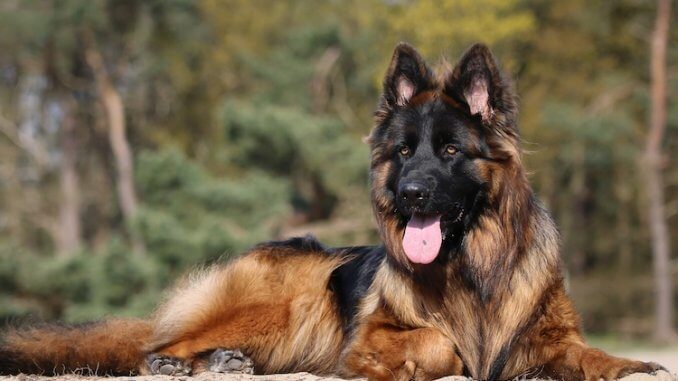
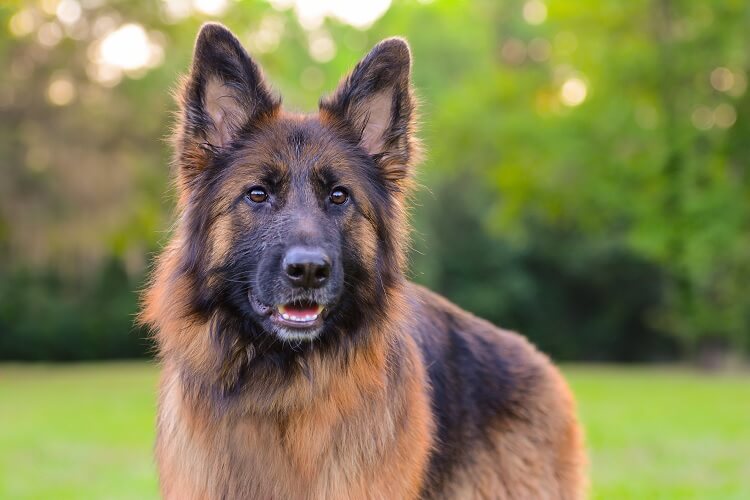
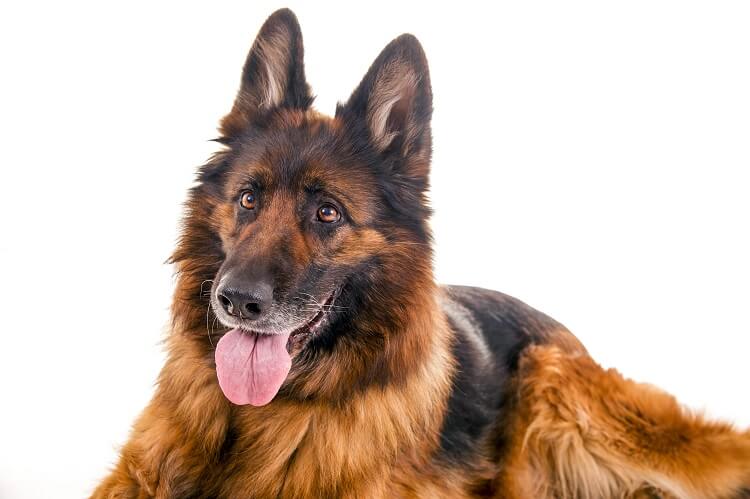
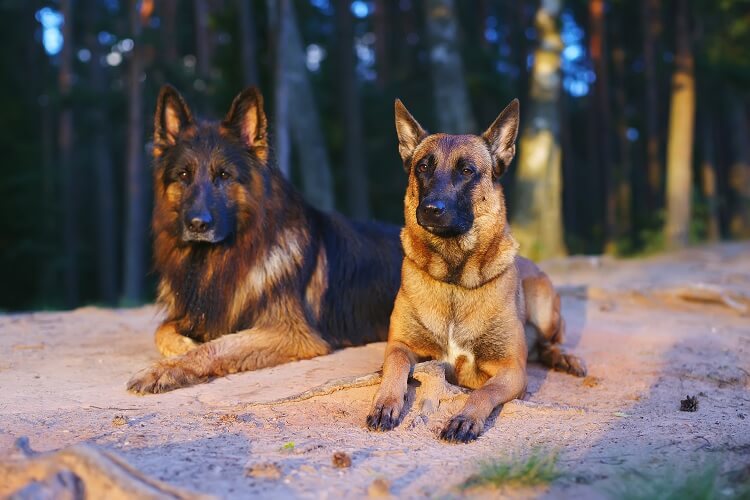
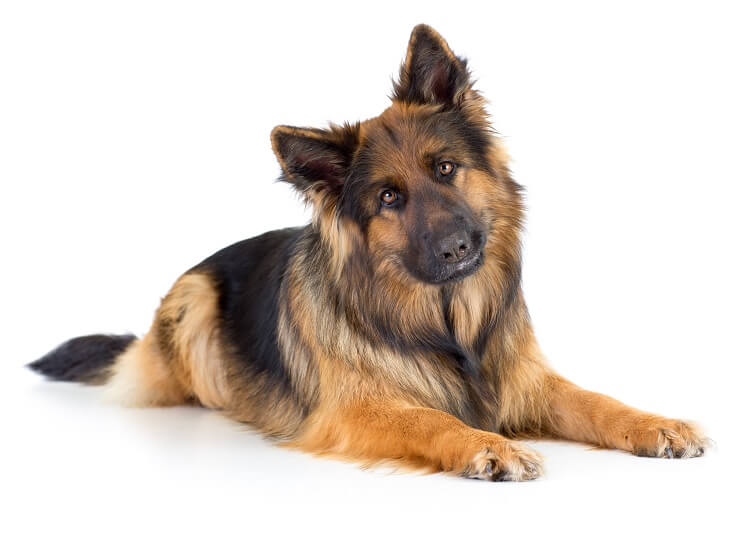

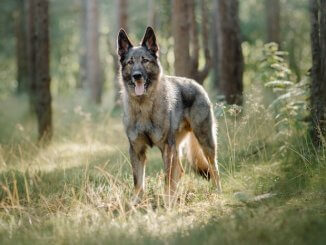
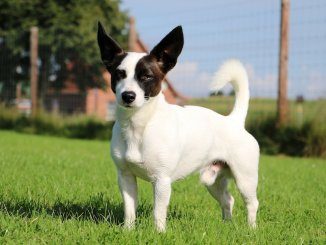
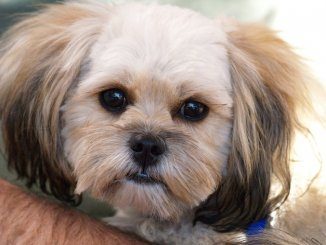
Denzel is born in October 2012 and now is a huge Long Haired German Shepherd. All written here is true and I experienced some of the facts described in the article.
Well, fortunately he was healthy from the beginning and I did my best (with success, I’d add) to keep him this way.
I own a big yard in the country and it is a huge joy for my friend!
Is true that he is friendly but has its limits in friendship: somehow, he can’t stand the Gypsies and cops! I’m a lawyer and having a lot to do with the cops, I had the opportunity to observe this fact.
One other thing I seen during the time passing with Denzel around, is that he never had a problem (with the quoted exceptions), with people coming inside my property. Smells them and according to his mood, he tries to play with them or simply lets them do whatever they want. The problem rises when they want to get out from my yard! If they are not together with a family member, they simply cannot exit! Denzel will never allow it and being a huge Wolf, is impossible to pass over his will!
I am sorry I can’t post here a picture of my furry Friend but I a assure you he’s exceptional! 2.65 ft tall (at the top of his head, ears not included), 2 ft tall at the hip and over 5 ft long and 145 lb of weight, no fat at all, just muscles! Trust me, is impressive and incredibly beautiful!
His behavior with other animals is also impressive, sometimes to the tears. I have Sun protected security glasses and many times there are birds colliding with them. Pigeons mainly but also other birds. Denzel takes them in his huge mouth and put them on the clean grass. Without hurting them!!! And blows his air to them. And pushes them with his nose to fly. He does all he can do to save them and put them back into the sky, where they belong. Of course we, the family, help him! And he is really happy when the birds “work” again!
Once, he brought an alley cat to give her his food. After a while, their “friendship” broke, because the cat dared to growl at him when he started to eat his meal. I had to give the cat away because Denzel, after being upset of the cat’s behavior, became nervous and I suspected that soon, I could discover a dismantled cat in the yard…
With kids, I trust him completely! He simply adores them! Kids are mean to animals but Denzel doesn’t cares. He is huge and has a huge fur cover so… let’s play! He never bites to harm. Well, if he thinks is necessary, he bites to kill! But only when he needs to defend something, someone defenseless or himself! He doesn’t fights with other dogs. He just kills them if he thinks is necessary. I seen him doing it 4 times and was like a lightning. Standing in front of his foe, like a rock. The other was barking, jumping, trying to intimidate him. When he attacked, Denzel stepped aside and severed his neck from a single bite. And afterwards, minded his own business like nothing happened.
Compared with the other GSD is much smarter, more powerful and way more attached to the family!
My advice: if you have one, treat him like a Friend, not like a stupid animal, because is not stupid at all and he treats you like you treat him… Love him and he’ll love you more!
He deserves to be loved, trust me!
I forgot one thing: the paws are huge compared to the ones of a regular GSD. And when he has to walk on ice, mud or unstable land, they expand, becoming even bigger than they already are! Way bigger!
Robert how is that even possible thier paws become bigger
We are watching our daughter and son in laws black long haired gsd. He is a hoot we have had him for 11 days now he is close to 7 months old. Unlike the summary of not liking the cold he loves it. This is Ohio and it is 27 out with wind and he is lying on the deck like there is a summer breeze.
He also loves people anyone who giggles or baby talks to him is his new best friend.
Unfortunately we are older and no dog parks for him, we live in a rural area so he has to depend on his daily plays with me. Fetching a stick in the leaves seems to suffice. We are surrounded by woods.
I do have a concern. I have been spoiling him. I go outside wirh him every time. Hard play in morning, rough housing after breakfast and walk in afternoon. He sleeps outside his crate at night. So far so good. The problem the kids live in the city. Fenced in yard so they don’t go out with him. But he does get a dog park. My concern will he feel we are the owners and not them when he leaves? They are on an international trip. We will have him 16 days total.
My dog is from a Swiss dame and a Bavarian sire. I think this article is wrong in some respects correct in others. Lots of work drive. Learns fast at early protection training. He is never hyper, but when he moves, he moves fast. He appears to be more powerful than regular GSD. 90+ lbs at 7&1/2 mos. but feels stronger. Heavy boned, really huge teeth. He is patient and good natured, not docile. Reliable around children. Super thick undercoat. Takes a long time just to get warm water and soap through the thick undercoat. Judging from his behavior this winter, he seems impervious to cold. Basically, a companionable wolf. This is a work dog, manageable with training and activity.